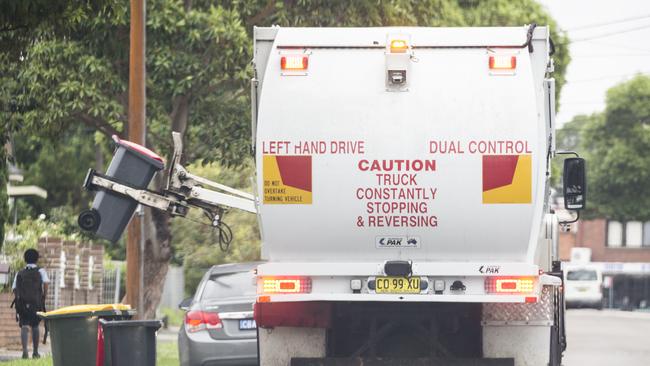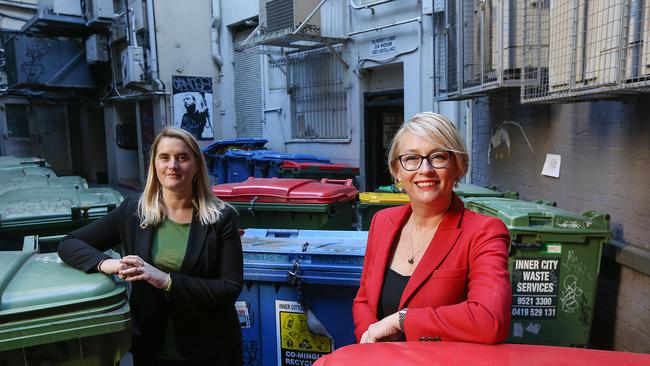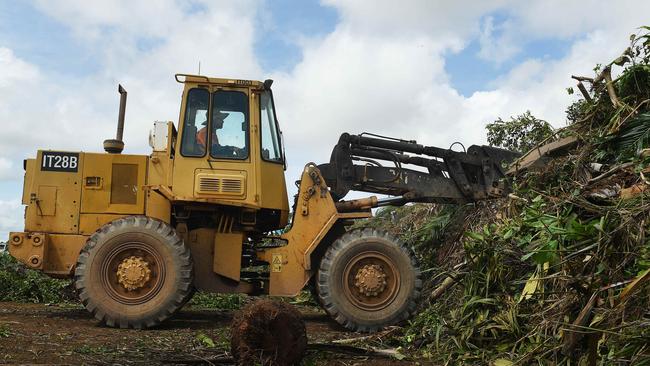City of Melbourne to trial fortnightly rubbish collection
Melbourne City Council is about to launch a major plan to reduce waste going to landfill and radically lift recycling rates. Here’s how it’ll affect your household’s habits.
VIC News
Don't miss out on the headlines from VIC News. Followed categories will be added to My News.
Some inner city residents could have their rubbish bins collected fortnightly instead of weekly under an ambitious Melbourne City Council plan to massively reduce the amount of waste going to landfill.
A proposed trial involving about 700 Kensington homes will see them get a third bin for weekly food waste collections.
Similar schemes used by some other councils have seen the normal weekly rubbish collection move to a fortnightly service.
CALLS FOR FORTNIGHTLY RUBBISH COLLECTIONS
PREMIER SLAMS FORTNIGHTLY GARBAGE COLLECTION
DUMPED RUBBISH A NEIGHBOURHOOD BLIGHT

If approved by a council meeting next week, the Waste and Resource Recovery Strategy 2030 would see the council moving to a “zero waste” ideal.
Within 11 years, the target is 90 per cent of waste diverted from landfill and a 20 per cent cut in household waste produced.
“We imagine a future where people and businesses avoid generating waste where possible, and appreciate waste as a valuable resource,” according to the plan.
Environment portfolio chair Cr Cathy Oke said that in 2016-17, food comprised half of all the municipality’s household waste, with 12,000 tonnes going to landfill.
“Through our engagement with the community we know people want a solution to avoid food going to landfill,” she said.
Under the Kensington trial, food and garden waste would be collected weekly.
A council spokeswoman said the details of the trial were still being worked out, but if approved, it would be run in the most environmentally sound and cost effective way possible.
“One possibility is that landfill and co-mingled recycling bin pick-ups could move to fortnightly, for the duration of the trial, while the organic waste bin is collected weekly,” she said.
“Concessions would be investigated for special needs such as medical, nappy and other bio-waste.”

Lord Mayor Sally Capp said the waste strategy also proposed expanding the current network of five waste hubs used by businesses in the inner city.
“We can dramatically reduce the number of bins lining our laneways and the number of trucks on our streets by creating more central waste drop-off points,” she said.
The waste strategy recommends education campaigns to improve recycling rates, but also suggests the council look at penalties for noncompliance.

Cr Oke said that the stockpiling of waste around the state because countries like China and India had restricted their imports of recyclable materials was a major wakeup call for all levels of government.
“We want to drive demand for recycled products by working with state and other local governments to set targets to use recycled content in projects like new roads, footpaths, railway sleepers, and drainage pipes,” she said.


